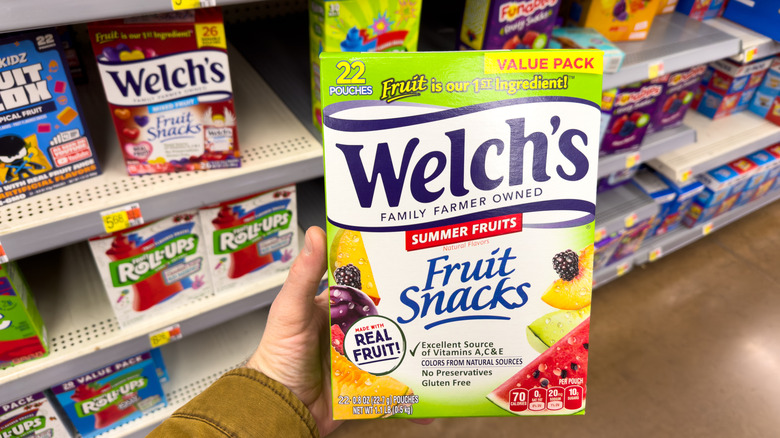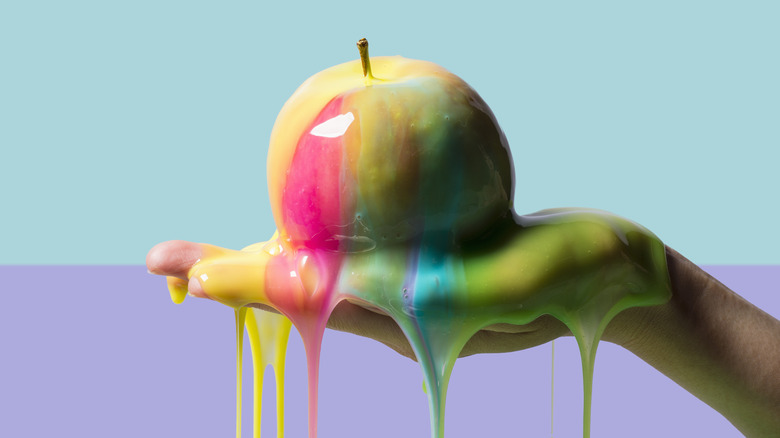Think Twice Before Buying A Product With A 'Made With Real Fruit' Label
Fruits and vegetables are an important part of our diet and eating the right amount of them can improve our health. As well as being super hydrating, almost all fruits contain essential nutrients like vitamins, antioxidants, and fiber. So, it's no wonder that we try to make consuming fruit as easy as possible. However, sometimes cutting corners can work against us, especially if you're trying to hit your recommended five-a-day by eating items that have a "made with real fruit" label. Turns out, these products legally don't have to contain very much fruit at all.
The Food and Drug Administration (FDA) doesn't currently have any stipulations about exactly how much fruit a company needs to include in a product before they can make a "made with real fruit" claim on the label. This means that the super healthy granola bar you've been eating every morning — the strawberry one made with "real fruit" — might only contain a very tiny amount of strawberry and instead rely heavily on artificial flavors and purees. The Academy of Nutrition and Dietetics went so far as to urge the FDA to review the requirements for "made with real fruit" labels in 2018, but there have yet to be any concrete changes.
Unpacking the truth about brand's fruit claims
Kellogg's Nutri-Grain Bars state on the packet that they are "made with real fruit," and while the company may throw a blueberry or two into its blueberry bar mixture, there's no way for us, the consumer, to know this for sure. The only thing we do know is that the ingredient list also names "blueberry concentrate" as the 29th ingredient, and doesn't necessarily mean fresh blueberries. Similarly, Welch's Fruit Snacks (which are already known for having varying fruit flavor ratios), tout a "made with real fruit" label but only list fruit purees among the ingredients, while many fruit candies just use synthetic flavorings. It's the reason banana sweets don't taste anything like the fruit.
If you want to make sure you're getting some actual fruit in your diet, read ingredient lists carefully and put some whole fruits in your basket. Avoid items that contain high fructose corn syrup (while fruit technically contains fructose, high fructose syrup does not translate to the same dietary benefits). If products list artificial ingredients first, they are likely highly processed. For healthier options, look out for packets that highlight fresh fruit as a major ingredient. Terms like "fruit flavoring" or "fruit juice concentrate" can also tell you if an item contains processed alternatives rather than fresh fruit. By taking these steps, you can make informed decisions when you shop and ensure that what you eat provides genuine nutritional benefits, instead of just a clever marketing illusion.

